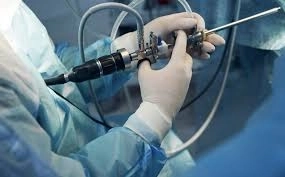
The Role of Endoscopy in Diagnosis: Explained by Dr. Osama El Bahr
Published on: 2025-06-18 | Written by: Dr. Osama Al-Bahr, Professor of Hepatology,
Endoscopy is one of the most important diagnostic and therapeutic tools in hepatology and gastroenterology. With the advancement of medical technologies, endoscopy has become a precise and safe method to investigate symptoms like abdominal pain, swallowing difficulties, or gastrointestinal bleeding. In this article, Dr. Osama El Bahr, Professor of Hepatology, Gastroenterology, and Endoscopy, explains the essential role of endoscopy in evaluating various conditions.
What Is an Endoscopy?
Endoscopy involves a thin, flexible tube with a tiny camera inserted into the upper or lower gastrointestinal tract to directly visualize the internal organs. It helps diagnose conditions of the stomach, esophagus, colon, intestines, and liver.
When Is Endoscopy Needed?
According to Dr. Osama El Bahr, endoscopy is recommended in several cases for accurate evaluation, including:
-
Persistent symptoms like reflux or pain unresponsive to treatment
-
Chronic vomiting or difficulty swallowing
-
Gastrointestinal bleeding (upper or lower tract)
-
Suspected gastric ulcers or colon cancer
-
Routine follow-up for patients with chronic liver disease
Difference Between Upper and Lower GI Endoscopy
| Type | Upper GI Endoscopy | Lower GI Endoscopy |
|---|---|---|
| Area Examined | Esophagus – Stomach – Duodenum | Colon – Rectum |
| Preparation | Fasting 6–8 hours | Bowel preparation with solution |
| Anesthesia | Local or mild sedation | Usually mild sedation |
| Duration | 10–15 minutes | 20–30 minutes |
Accuracy and Benefits
Dr. Osama El Bahr emphasizes that endoscopy is a highly accurate tool for diagnosing:
-
Gastric ulcers and inflammation
-
Early-stage gastrointestinal tumors
-
Sources of bleeding
-
Collecting tissue samples (biopsies)
It also allows therapeutic procedures such as removing polyps, dilating strictures, or stopping bleeding.
Is Endoscopy Painful?
Dr. Osama El Bahr assures that most patients feel no significant pain during the procedure, especially with local anesthesia or mild sedation. The procedure is performed in a safe, controlled environment by a specialized medical team.
When Should You See a Doctor for Endoscopy?
If you experience chronic symptoms like:
-
Persistent acid reflux
-
Unexplained abdominal pain
-
Sudden weight loss
-
Blood in stool
-
Family history of GI diseases
You should consult a doctor. Dr. Osama El Bahr will assess your condition and determine whether an endoscopy is necessary for diagnosis or treatment.

